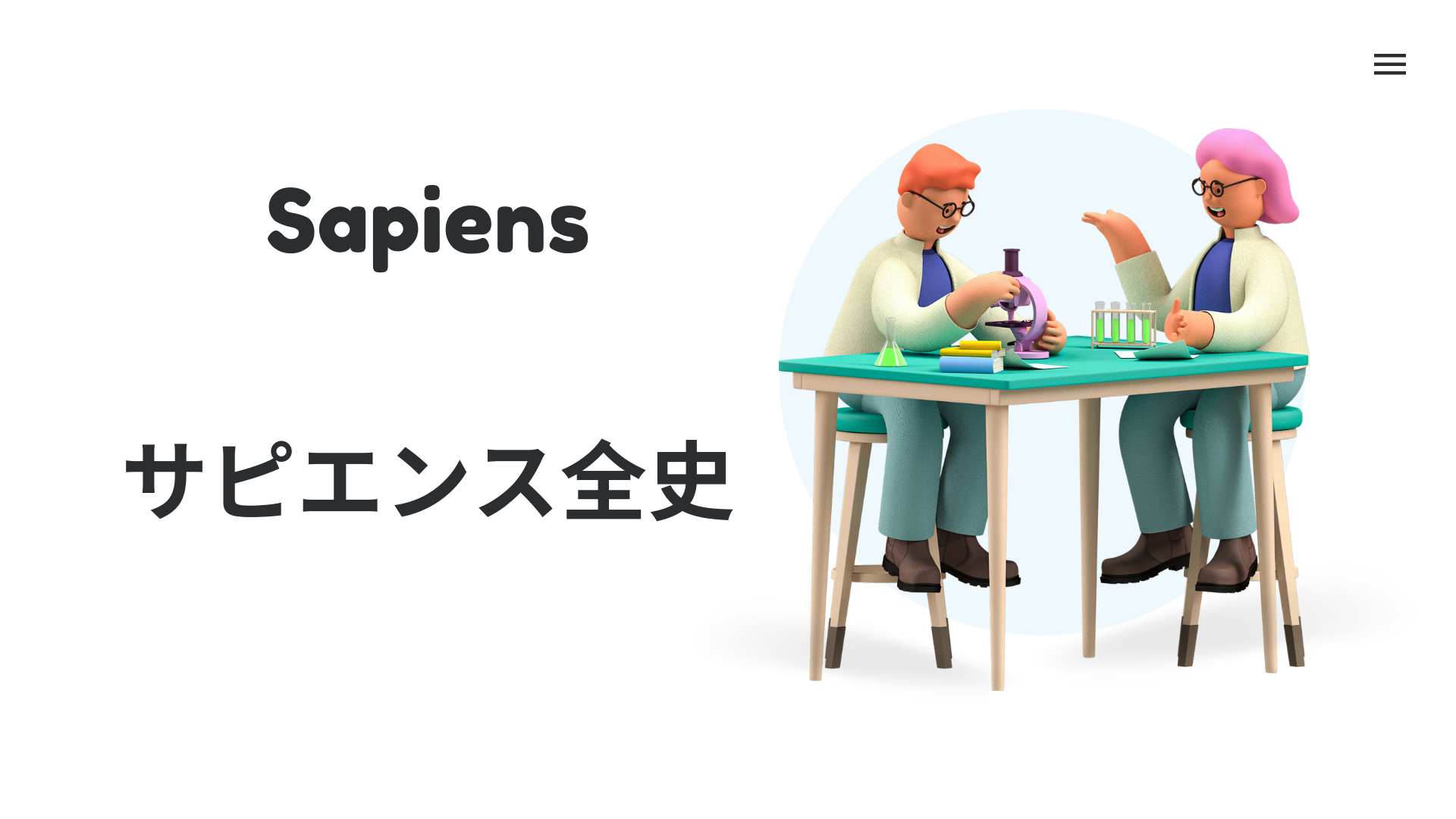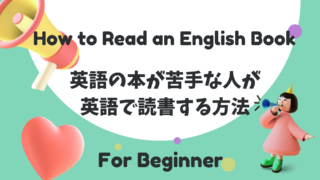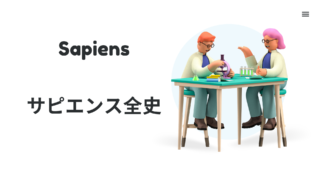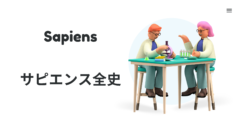
英語でSapiens を読もう📖#17
For English learners!
Hello everyone, how’s your English learning journey going?😃 Reading an English book is sometimes a long journey. You might inadvertently stop if you are alone. But no worries. You are at the right place already. I would like to explore an English book here so that you can try reading the book with me. We are not alone. Let’s enjoy a fun time reading!
The book, which I picked up this time, is called Sapiens, published by Yuval Noah Harari. The Amazon Kindle link below allows you to read up to chapter 3. Today, I am covering chapter 17.
You can check out my recommending strategy of reading as well as a bit of information about this book with a link below. Okay then, let’s get started📖
日本語学習者のみなさん!
みなさん、こんにちは。あずみです。日本語の勉強はどうですか?やさしい日本語で読むのに飽きてきたあなたに、もうワンランク上のリーディングをお届けしたい、ここはそんなブログです。英語部分で私が書いていることを、日本語で書くならこんな感じというのがテーマです。ぜひ、カジュアルな日本語のライティング表現を体験しながら、同時に興味深い本の内容も楽しんでボキャブラリーの幅を広げてくださいね。😃
英語の勉強、はかどってますか?英語の本を読むのって長い旅路ですよね。うっかり止まって挫折してしまうのはとても簡単です。でもこのブログを読んでいるあなたはだいじょうぶ。そんなあなたを応援するのがこのブログです。このブログで私は本を取り上げ、掘り下げていきたいと思いますので、よかったら私といっしょにこの本にチャレンジしてみてください。
今回読む本は、ユヴァル・ノア・ハラリさんの「サピエンス全史」です。本の内容はアマゾンキンドルのリンクから試し読みで確認してみてください。
また、こちらのリンクから英語の本のオススメの読み方について取り上げています📖ぜひ確認してみてくださいね。さぁ、17章を読みましょう。
Ch.17 The Wheels of Industry
🦧第17章 産業の推進力
Grasp the structure!🦧構成を把握する

To grasp the chapter, you just try to see its hierarchical configuration. I strongly recommend drawing it either physically or virtually.
階層構造を追い、内容を把握します。実際にメモを取りながらするとはかどります。
🚧工事中 🚧
People became obsessed with the idea that machines and engines could be used to convert one type of energy into another. It is a matter of inventing the right machine.
🚧工事中 🚧
🚧工事中 🚧
🚧工事中 🚧
🚧工事中 🚧
Summarize the chapter concisely🦧章を一言でまとめる

To summarize, check the hierarchical configuration and make sentences with important points of each.
階層構造の各部分のポイントを確認して、文にしてまとめます。
Economic growth requires energy and raw materials besides capitalism doctrine. Prior to the Industrial Revolution, humans relied on plants and the sun. People had been unable to notice the potential of energies such as steam engines’ mechanisms, petroleum, electricity, until the Industrial Revolution. Once admitting ignorance enabled people to invent the steam engine, they became obsessed with the idea that an invention enables them to convert one type of energy into another. The Industrial Revolution has been a revolution in energy conversion. It has continuously proven that the limit is only set by our ignorance. Scientific breakthroughs have been not only invented the mechanisms of energy but also discovered raw materials. It yielded an unprecedented combination of cheap and abundant energy and cheap and abundant raw materials. It brought an explosion in human productivity, and more people began engaging to supply products.
The modern capitalist economy constantly increases production. It means that someone must buy the products. Sapiens created a new ethic, the capitalist-consumerist religion which reins by two commandments: the rich shall more invest, while the masses shall more buy.
経済成長には、資本主義の教義に加えて、エネルギーと原材料が必要です。産業革命以前は、人間は植物と太陽に依存していました。産業革命まで、人々は蒸気機関のメカニズム、石油、電気などのエネルギーの可能性に気付くことができなかったのです。無知を認めることで人々が蒸気機関を発明できるようになると、発明によってあるエネルギーを別のエネルギーに変換できるという考えに夢中になりました。産業革命とはつまりエネルギー変換の革命だったのです。限界とは私たちの無知がなす定義でしかないことが、継続的に証明されてきています。科学的な大発見は、エネルギーのメカニズムを発明しただけでなく、原材料も発見しました。それは、安価で豊富なエネルギーと安価で豊富な原材料という前例のない組み合わせを生み出しました。それは人間の生産性を爆発的に増加させ、より多くの人々が製品の供給に従事し始めることになりました。
現代の資本主義経済は絶えず生産を増やしています。それは誰かが製品を買わなければならないことを意味します。サピエンスは新しい倫理、資本主義-消費者の宗教を創造しました。それは2つの戒めによって統制されます:金持ちはより多くの投資をすること、大衆はより多くのものを買うこと。
Make questions to discuss🦧ディスカッション用の質問を作ろう

To discuss, make questions. It gives you a great topic to talk about in English.
本について話し合うための質問を作ります。作った質問は英語で話をするときのいい話題になりますよ。
What does it mean? How are the parts connected? what is the reason for people’s actions?
There is more than one possible answer, but the viewer’s opinion is based directly on the text.
ここはどういう意味でしょう?これらの箇所はどう繋がっていますか?この行動にはどんな意味がありますか?
答えは2つ以上考えられますが、質問の答えは本文に直接基づいている必要があります。
My opinion: It is really realistic, as the author point out in the chapter that it is so easy to find a psychological message that encourage us to buy more. Especially when I was in the U.S. I found that much stronger atmosphere in society. People buy so many stuff. Their culture is connected a purchasing action, from the decoration of the homeparty to wearing their own school, team, club T-shirts. I don’t think this lead Sapiens to paradise. As the chapter 12 explores Siddhartha Gautama’s realization, cravings bring Sapiens suffering. Unfortunately, this ethic lead them to the opposite place. And, the last sentences of the chapter “How, though, do we know that we’ll really get paradise in return? We’ve seen it on television.” seems to imply that the author doesn’t agree with it. Yet, moreover, this religion might have a dangerous potential to take away an ability of seeing where we are from us.
私の意見:著者がこの章で指摘しているように、「資本主義ー大量消費主義」教は本当に現実的だと思います。人々にもっと購入するように促す心理的なメッセージを見つけることはとても簡単です。私がアメリカにいたときには、私は社会の中に特に強い雰囲気を感じました。とにかく人々がたくさんのものを買う文化です。ホームパーティーでの装飾から、自分の学校やチーム、クラブなどのオリジナルTシャツの着用まで、様々な文化の一つ一つが購入行動に結び付いています。私はこれがサピエンスを楽園に導くとは到底思えません。第12章でゴータマ・シッダールタの悟りをみてきたように、渇望はサピエンスに苦しみをもたらすからです。残念ながら、この資本主義ー大量消費主義倫理はパラダイスとは反対の場所に導くでしょう。この章の最後はにある「しかし、私たちが本当に楽園を手に入れることをどうやって知ることができるでしょうか?テレビで見たあの楽園だと。」という描写は、著者がそれに同意しないことを意味しているように感じさせます。そして残念ながら、この宗教には、私たちがどこにいるのかを知る能力をも奪う危険な可能性さえ秘めているかもしれないと感じています。
five questions for discussion🦧ディスカッション用の5つの質問
How does this make me feel? What does it remind me of?
There are many correct answers that are related to one’s experience; they can be found outside of the text/speech.
この箇所はどんな風に感じますか?何を思い出させますか?
個人の経験に関連するたくさんの答えが本文の外で見つけられることが考えられます。
What does it say?
One correct answer is found in the text.
なんと言っていましたか。
答えは一つです。テキスト内でみつけることができます。
What does it mean? How are the parts connected? what is the reason for people’s actions?
There is more than one possible answer, but the viewer’s opinion is based directly on the text.
ここはどういう意味でしょう?これらの箇所はどう繋がっていますか?この行動にはどんな意味がありますか?
答えは2つ以上考えられますが、質問の答えは本文に直接基づいている必要があります。
What is the message beyond this presentation? What are the greater issues or questions this piece deals with?
The presentation is not directly referenced in the question. There are many possible answers found outside of the presentation, but it’s a starting point.
このトピックが伝える、もっと大きなメッセージはなんでしょう?このトピックの先にどんな大きな問題が見えますか?
この質問は、このトピックと直接リンクする必要はありません。この話の外側にたくさんの答えがあるでしょう。でも、このトピックがいいスタートポイントになります。
How effective is the presentation in whole or in part? Why did the speaker/author make these choices and how well do they work?
Many possible answers can be found outside of the presentation but it’s a reference.
この箇所は全体の中で/この部分においてどう効果的な役割を果たしていますか?どうして話者はこのような表現をしましたか、またそれはどのように機能していますか?
たくさんの答えが本文の議論の外でひとつの例としてみちびかれる可能性があります。
Expressions and terms🦧覚えておきたい単語・表現

Pick some terms that you are unfamiliar with from sentences you high-lightened and memorize them because you need them to discuss this chapter!!
読みながらハイライトした特に重要だと思う文の中から、使い慣れていない言葉を選んで覚えましょう。なぜかというと、ディスカッションで意見や考えを言うために必要になるからです。
| term | example sentence |
|---|---|
| suffice | The modern economy grows thanks to our trust in the future and to the willingness of capitalists to reinvest their profits in production. Yet that does not suffice. |
| outstrip | For the first time in human history, supply began to outstrip demand. |
| frugality | It encourages people to treat themselves, spoil themselves, and even kill themselves slowly by overconsumption. Frugality is a disease to be cured. |
| Consumerism indulgence | Consumerism has worked very hard to convince people that indulgence is good for you, whereas frugality is self-oppression. |
| 単語 | 例文 |
|---|---|
| 不十分な | 現代経済は、未来への信頼と資本家の利益を生産に再投資する意欲のおかげで成長している。しかし、それだけでは不十分である。 |
| 上回る | 人類の歴史上初めて、供給が需要を上回り始めた。 |
| 倹約 | それは人々が自分自身を大切にしたり、甘やかしたり、さらには過剰消費によってゆっくりと自分自身を殺すことさえ奨励する。倹約は治癒すべき病気なのだ。 |
| 大量消費主義 甘やかし | 大量消費主義は、倹約は自己抑圧である一方、甘やかしは良いことなのだと懸命に説得に励んできました。 |

What did you think of the two commandments of the capitalist-consumerist ethic? I thought I had been successfully indoctrinated by this religion once in my 20s and half of my 30s. What brought me back from this religion was to become unemployed. I was really grateful that happens to me. Even though I try not to engage in this ethic, it is almost impossible to avoid completely. When I read this chapter, I thought I am definitely a member of the rest of us, who are in charge of consuming in society. Although more and more people try to increase their money via investment in order to join the group of the rich, the reality just tells us that the gap has just widened. However, considering the structure that we have seen in the book, this seems to be hardly changeable. What do you think?
資本主義ー大量消費主義倫理の二つの戒めについてどう思いましたか?私の20代と30代の半分はこの宗教に見事に洗脳されていたと思いました。この宗教から離れることができたきっかけは無職になったことです。本当にありがたい気づきを得ることができました。今はこの倫理に関与しないように全力で努めていますが、実際のところ完全に回避するのはほぼ不可能です。この章を読んだとき、私は間違いなく消費行動を担当する大衆グループに属している思いました。エリートグループに加わるために投資を通じてお金を増やそうと努力する人は昨今ますます増えているように思いますが、現実世界では富裕層と一般庶民のギャップは広がるばかりです。しかし、この本で見てきたこの社会構造を考えると、この現実を変えることは不可能なのではないかと思います。どう思いましたか?




コメント